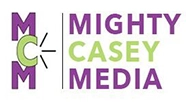The Tear Gas I traveled to Santiago, Chile recently. My timing was auspicious, since my news-puke bingo card still had an open slot preventing me from screaming BINGO at the top of my lungs. That open square was “get tear gassed” — it got filled at around 11am Atlantic Time on Monday, October 21, as tear gas rolled down Avenida Libertador General Bernardo O’Higgins, called La Alameda by locals. It’s really hard to scream BINGO at the top of your lungs while getting tear gassed, by the way. In case you wondered. I was in Chile to attend and speak at the annual Cochrane Colloquium, a global meeting for health researchers, science geeks, and health policy nerds from all over ever’where, to share the experience of being part of the first #PatientsIncluded Cochrane Colloquium in Edinburgh last year. The conference was scheduled to start on Tuesday, October 22. On Thursday, October 17, Chilean citizens — who have had to put up with A LOT over the last sixty or so years — got fed up with ever increasing costs of living and took to the streets to protest a subway fare hike, led by high school students who jumped turnstiles to evade paying the new fare. EVADE become the mantra of the protest, which kept growing over the next couple of days, with some seriously crunchy stuff happening — a Walmart in Valparaiso got burned down, and a Santiago office tower occupied by an energy company burned, too. All of this was ramping up as I traveled from the US to Chile on Saturday into Sunday, October 19 and October 20, so when I got to Santiago on Sunday morning, there was already a curfew on tap, and a whole lot of military dudes in camo and battle gear wandering…
Read More



